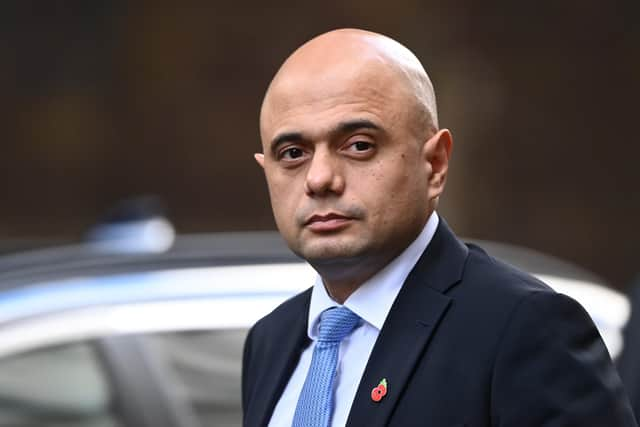NHS waiting times: Key takeaways from government's new recovery plan
and live on Freeview channel 276
Health Secretary Sajid Javid set out in the House of Commons how the NHS would tackle the backlog of care built up during the Covid-19 pandemic, including new targets for reducing long waits and getting people checked for illnesses more quickly.
Among the ambitions were:
– The NHS will “eliminate” waits of over 18 months by April 2023, and waits over 65 weeks by March 2024.


– Waits of longer than a year will end by March 2025.
Advertisement
Hide AdAdvertisement
Hide Ad– No-one will wait longer than two years for treatment by this July.
– Some 95 per cent of patients needing a diagnostic test will receive it within six weeks by March 2025. This target already exists but is not being met.
– By March 2024, 75 per cent of patients who have been urgently referred by their GP for suspected cancer will be diagnosed or have cancer ruled out within 28 days.
– By March next year, people should wait no more than 62 days between an urgent referral for suspected cancer and the start of treatment. This target already exists but is not being met.
Advertisement
Hide AdAdvertisement
Hide AdAs reported, around six million people in England are on the NHS waiting list for treatment, including hip and knee replacements, cataract surgery and tests.
According to the plan, if all 10 million people estimated to have stayed away during the pandemic came forward for treatment, and activity was not increased above pre-pandemic levels, the waiting list could hit 14 million.
Mr Javid said: ‘Assuming half of the missing demand from the pandemic returns over the next three years, the NHS expect waiting lists to be reducing by March 2024.
‘Addressing long waits is critical to the recovery of elective care and we will be actively offering longer waiting patients greater choice about their care to help bring these numbers down.’
Advertisement
Hide AdAdvertisement
Hide AdThe plan will focus on ‘four areas of delivery’, including increasing health service capacity together with the independent sector; prioritising diagnosis and treatment; reforming care such as making outpatient appointments more focused on ‘clinical risk and need’, and increasing activity through dedicated and protected surgical hubs.
The plan also sets out how patients will be helped to make use of the NHS App to better manage appointments, bookings and the sharing of information.
As previously announced, some nine million additional treatments and diagnostic procedures will be brought in by 2025, while the admin burden on staff will be cut.
NHS England said this will mean that over a three-year period, patients will be offered around 17 million more diagnostic tests – an increase in capacity of a quarter compared with the three years prior to the pandemic.
Advertisement
Hide AdAdvertisement
Hide AdThe plan further promises to create dozens more community and NHS-based sites for surgical procedures and “convenient, quick diagnostic checks, towards our ambition of a network of surgical hubs and diagnostic centres covering the entire country”.
This is in addition to the network of 122 surgical hubs already operating.
Teams of specialists will be deployed to help patients prepare for their operations, and groups of clinicians and teams will be able to get instant access to test results, offering patients faster clinical advice.
Speaking in the Commons, Mr Javid said that despite the NHS’s ‘exceptional efforts’, there ‘is now a considerable Covid backlog of elective care.’
Advertisement
Hide AdAdvertisement
Hide AdHe said 1,600 people were waiting longer than a year for care before the pandemic but that figure is now over 300,000.
A message from the Editor, Mark Waldron
Subscribe here for unlimited access to all our coverage, including Pompey, for just 26p a day.
Comment Guidelines
National World encourages reader discussion on our stories. User feedback, insights and back-and-forth exchanges add a rich layer of context to reporting. Please review our Community Guidelines before commenting.
